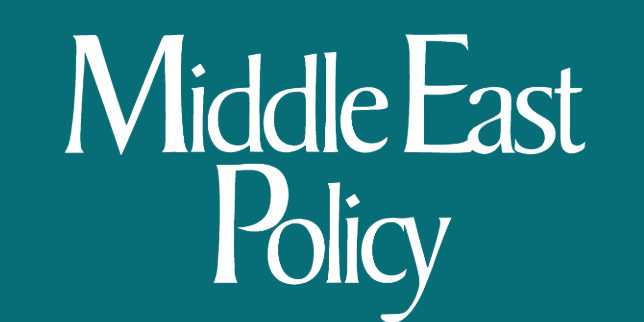Israel’s resumption of the Gaza war, and recent calls by President Donald Trump for the United States to expel Palestinians and take control of the enclave, have exposed the failure of Saudi Arabia and Iran to wield regional influence and resolve the conflict. A new piece in Middle East Policy, free to read through May 1, analyzes in detail how these two middle powers were unable to overcome their disputes and end the war on favorable terms.
All articles in the Spring 2025 issue of Middle East Policy are free to read during the month of April, even for those without a subscription!
Banafsheh Keynoush of the University of Notre Dame first examines the decade of rivalry between Saudi Arabia and Iran that helped to create the conditions for Israel’s campaign against Palestinians. She then shows that, despite their enmity, the two middle powers had the opportunity to work together after the October 7 attacks. “By engaging with Iran to address the Gaza war, the kingdom in effect delayed normalization talks with Israel,” Keynoush writes. “Riyadh also reframed its foreign policy, asserting that the process would not move ahead unless the international community granted recognition to a Palestinian state within the lands taken by Israel in 1967.”
However, Keynoush’s analysis of their actions throughout the Gaza war shows that neither Iran nor Saudi Arabia developed consistent strategies. Tehran exposed itself to a multifront conflict, while the kingdom tried simultaneously to press for Palestinian rights and to keep alive a potential normalization with Israel.
The Saudi-Iran divide not only empowered Israel but allowed Washington to achieve its preferences, Keynoush asserts: “By not seeking a permanent solution to build peace or subvert the cyclical nature of the most enduring conflict in the Middle East, between Israel and Palestine, Saudi Arabia and Iran were sidelined by the United States when it built the first phase of a ceasefire between Israel and Hamas by mid-January 2025.”
In addition to analyzing the decline of Saudi and Iranian regional influence, the 163rd issue of Middle East Policy examines whether China has fundamentally shifted its relationship with Israel, as well as the persistent myths surrounding regime change in Syria and how Assad’s fall has empowered Turkey.
The journal then takes a deep dive into Saudi Arabia’s potential security deal with the United States, including Israel’s reaction to a proposed Saudi nuclear capability, the China factor that motivates Washington’s pursuit of an accord, and whether the region could become a WMD-free zone. And we analyze peace building in postwar Yemen, how demographic change affects reconciliation in Iraq after the ISIS occupation, and Pakistan’s security challenges since the Taliban’s takeover in Afghanistan.
Readers can find the Winter 2024 issue through this link, featuring M.T. Samuel’s analysis of the Gaza war and Palestinian dispossession. The journal’s special releases on the post-October 7 conflicts, Israel’s Wars and The Gaza War, remain vital sources.
Middle East Policy, Spring 2025—all articles free through May 1!
SYRIA, GAZA, AND STIRRINGS OF A NEW ORDER
Myth Busting in a Post-Assad Syria
Rob Geist Pinfold
Turkey’s Long Game in Syria: Moving beyond Ascendance
Şaban Kardaş
Saudi Arabia and Iran: Spoilers or Enablers of Conflict?
Banafsheh Keynoush
Out of Proportion: Israel’s Paradox in China’s Middle Eastern Policy
Yitzhak Shichor
THE US-SAUDI PACT AND NUCLEAR SECURITY
How to Address the Saudi Nuclear Program? An Israeli Dilemma
Niv Farago
The China Factor in US-Saudi Talks for a Defense Pact
Ghulam Ali, Peng Nian
Negotiating the Impossible? A WMD-Free Zone in the Middle East
Robert Mason
CIVIL WARS AND THEIR AFTERSHOCKS
Local Participatory Development Models for Postwar Reconstruction in Yemen
Asher Orkaby, Afrah Al-Ahmadi
Demographic Change and Social Cohesion in Post-Islamic State Iraq
Omran Omer Ali, Nazar Ameen Mohammed, Aurélie Broeckerhoff
The Taliban-TTP Nexus and Pakistan’s Rising Security Challenges
Shahid Ali, Raj Verma
BOOK REVIEWS
Florian Weigand, Waiting for Dignity: Legitimacy and Authority in Afghanistan
Reviewed by Sajjad Ahmed
Karel Černý, Instability in the Middle East: Structural Changes and Uneven Modernisation 1950–2015
Reviewed by Alper Çakır
Biden’s Gaza Failure, the Syrian Revolution, and the Folly of US Middle East Policy
Review essay by A.R. Joyce
